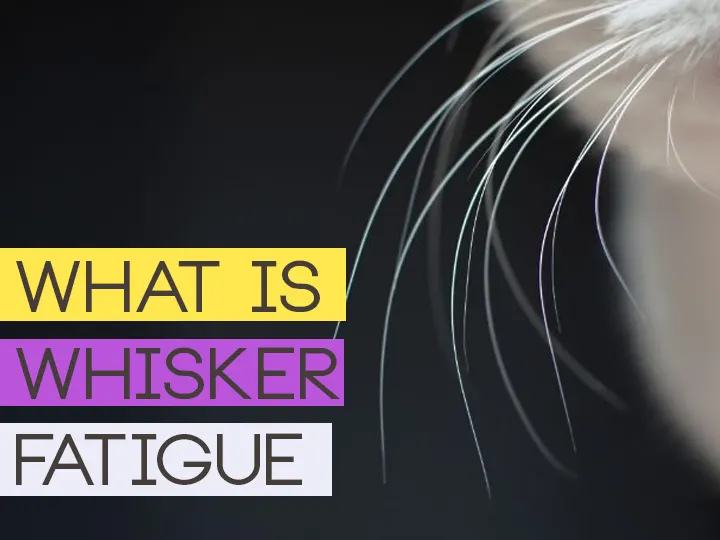
Cat whisker fatigue is a term used to describe a phenomenon where cats experience sensitivity or discomfort in their whiskers. Whiskers, also known as vibrissae, are long, thick, and highly sensitive hair-like structures on a cat's face, around the mouth, above the eyes and on the chin. These whiskers play an important role in a cat's sensory system, providing them with vital information about their environment.
Whiskers are not just simple hairs, they are richly supplied with nerve endings that allow the cat to feel vibrations, changes in air currents, and the size and shape of objects. Cats use their whiskers to navigate in the dark, to locate prey, and to judge the size of openings before entering them.
However, just like other body parts, whiskers can become fatigued, sore or damaged. This can happen due to a variety of reasons.
Overstimulation: Whiskers are highly sensitive, and if they are constantly being touched, brushed against, or pulled, they can become overstimulated, causing discomfort or pain.
Trauma: Whiskers can be broken or damaged if a cat is in a fight, or if they get caught in something. This can cause pain and discomfort.
Allergies: Cats can develop allergies to grooming products, which can cause itching and discomfort.
Infections: Whiskers can become infected if they are constantly wet or dirty.
Illness: Certain illnesses, such as cancer, can cause whisker fatigue.
Symptoms of whisker fatigue in cats include:
Constant licking or biting at the whiskers
Whiskers that appear bent, broken or frayed
Whiskers that are missing
A cat that seems irritable or uncomfortable
If you suspect your cat is experiencing whisker fatigue, it's important to take them to the vet for an examination. Your vet will be able to determine the underlying cause of the problem and recommend an appropriate course of treatment.
Treatment for whisker fatigue will depend on the underlying cause. In some cases, the whiskers may simply need to be trimmed to remove any damaged or broken parts. If the problem is caused by an infection, antibiotics may be prescribed. If the problem is caused by an allergy, an antihistamine may be prescribed. In some cases, the problem may be caused by an underlying illness, and treatment will be directed at addressing that illness.
It is important to note that whiskers have a natural growth cycle, and they will naturally fall out and grow back. Therefore, it's important to be mindful of not over-grooming your cat's whiskers and not to be alarmed if you see your cat's whiskers falling out.
In conclusion, cat whisker fatigue is a condition in which cats experience sensitivity or discomfort in their whiskers due to various reasons such as overstimulation, trauma, allergies, infections or illnesses. It's important to pay attention to the symptoms and visit a veterinarian to address the underlying cause and provide appropriate treatment.